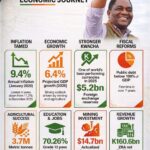By BUUMBA CHIMBULU
AT the just ended Luanda Financing Summit for Africa’s Infrastructure Development, Binyam Reja, the World Bank’s Practice Manager for Eastern and Southern Africa (Transport), emphasised that innovative financing for Africa’s infrastructure must begin with domestic resource mobilisation.
The summit, attended by ministers, development financiers, and private sector leaders, closed with a shared commitment to advancing integrated, sustainable, and financially viable corridor development across the continent.
Speaking during a session on “Aligning Global and Regional Partnerships towards Integrated and Sustainable Corridor Development in Africa,” Mr Reja underlined that sustainable financing depended on countries’ ability to generate and manage their own revenue streams.
“Innovation isn’t only about public–private partnerships or sophisticated financial structures. It’s about the policies you put in place to generate revenue.
Whether through tolls, railway tariffs, or fuel levies, countries need to identify reliable income sources to repay loans and attract private investment. Without a sound revenue base, you won’t get there,” he said.
He explained that Africa’s current approach to infrastructure financing remained limited, heavily reliant on donor funding and government budgets, which constrains both scale and sustainability.
“In Africa, infrastructure finance is still rudimentary,” Mr Reja said. “We haven’t yet pushed the envelope on advanced, self-sustaining financing mechanisms that strengthen a country’s ability to raise and manage revenue.”
Mr Reja pointed to the World Bank Group Guarantee Platform as a tool that can help de-risk investments and attract private capital by guaranteeing future revenue streams.








